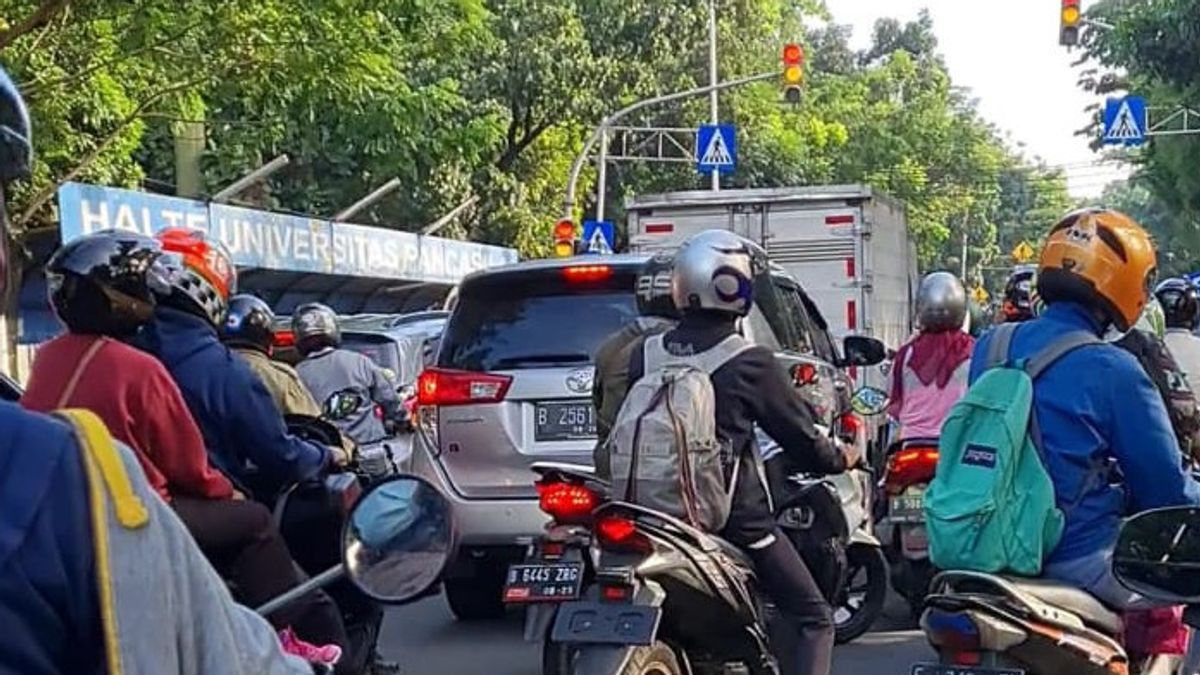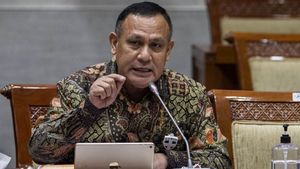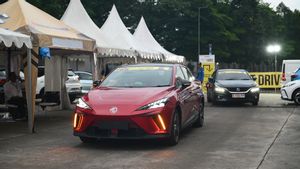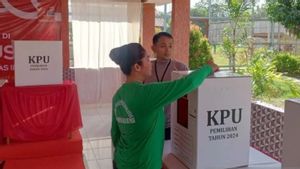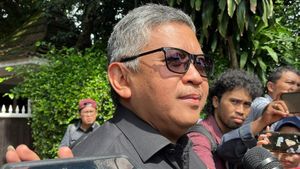JAKARTA - Jakarta returns to its original face as the handling of COVID-19 continues to improve. Here and there it will be easy for us to get a picture of the streets of Jakarta which are full of vehicles.
Deputy Governor of DKI Jakarta Ahmad Riza Patria acknowledged this. The reason, he said, was the condition of community activities as normal.
Although, Jakarta is still implementing the Level 2 Community Activity Restrictions (PPKM) which will be implemented from 5 to 18 April 2022.
"So, the traffic jams have started, right now we are back to normal, even though Jakarta is still implementing PPKM Level 2 for the next 2 weeks," Riza said Tuesday, April 5.
The Traffic Directorate of Polda Metro Jaya noted an increase in the number of vehicles on the capital's roads. The reason is the work from home scheme which is no longer applied during the COVID-19 pandemic.
"There is an increase of 10 to 18 percent," said Director of Traffic Polda Metro Jaya Kombes Sambodo Purnomo Yogo.
The percentage increase in the number of vehicles is based on data from the past week. However, regardless of the data, the number of vehicles has increased significantly. Because traffic jams are starting to happen everywhere.
Member of Commission B of the DKI DPRD from the PDIP faction, Gilbert Simanjuntak, criticized the DKI Governor Anies Baswdan's efforts to overcome congestion which was deemed not optimal.
"Currently, the (traffic) condition is normal. It is not clear how the DKI Provincial Government is trying to deal with congestion," Gilbert said when contacted, Thursday, April 7.
In fact, some time ago, Anies had revealed that the level of congestion in Jakarta was decreasing. This is based on the results of a TomTom survey that in 2021 Jakarta will be ranked 46th out of 404 most congested cities in the world.
At that time, Anies claimed that the reduction in congestion was due to the transformation of the transportation system that he had carried out while leading the capital city.
Anies came to the UGM MosqueThe Governor of DKI Jakarta, Anies Baswedan himself, before the weekend, flew to Yogyakarta to participate in the Tarawih prayer lecture at the UGM Mosque. There, Anies discussed urban problems, especially those in Jakarta.
In his lecture, Anies showcased the achievements of the Jak Lingko program which he initiated when he led Jakarta. Anies said that JakLingko was initiated when he saw the fact of the inequality between Jakarta residents and their motorized vehicles.
What happened, said Anies, was that Jakarta was facing traffic jams. Therefore, Anies wants to reduce the number of private vehicles and increase the number of public vehicles with the JakLingko program.
In this program, Anies gathered dozens of angkot, metromini, and kopaja operators. To them, Anies offers operators the management of public transport payments per column. Meanwhile, the public pays IDR 5,000 for a duration of 3 hours and is allowed to change transportation.
"Create a system called JakLingko. JakLingko was a system that used to be, residents and public transportation, they made transactions. We are part of the government making regulations. We will change it, our vehicle operators buy their services. We buy your services per kilometer per day," said Anies.
As a result, Anies continued, the operators also agreed to join the JakLingko program. Anies claimed that the JakLingko program was successfully implemented without inviting problems between the operator and the DKI Provincial Government.
"They have a contract with the government to be served for years. So, they replace it without hurt. No metromini, evicted kopaja, and no drama. All finished without drama," said Anies, which was greeted with applause.
After the JakLingko program, Anies said that the current condition of public transportation is getting better. Anies admits that he rarely sees reckless public transportation on the road.
In fact, he said, the number of passengers on public transportation is currently increasing. "What happened after that was done? This is subhanallah. We didn't expect it to be like this. In the past, every day in Jakarta, only 350 thousand people took public transportation. After the new system was created, it increased to 1 million people per day," he said. he.
The English, Chinese, Japanese, Arabic, and French versions are automatically generated by the AI. So there may still be inaccuracies in translating, please always see Indonesian as our main language. (system supported by DigitalSiber.id)
